Give chefs the chance to express their skills for happier workplace, says new research
Research by The Caterer and Searcys has found that when chefs are given the chance to express their skills, they are happier and more likely to stay for longer. Elly Earls investigates
Hospitality companies are finding it more difficult than ever to hire chefs, according to new research by Searcys, the UK’s longest running independent catering company, carried out with The Caterer.
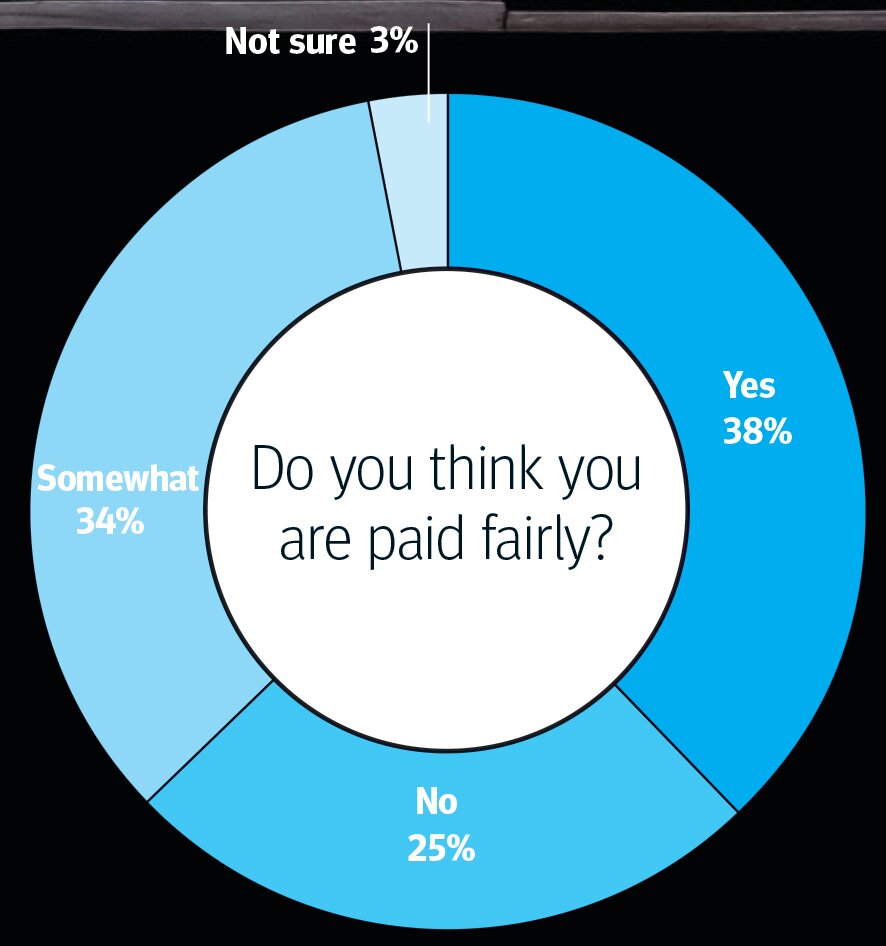
Encouragingly, however, perceptions of the job have improved within the sector, with creativity prized more highly than ever. In the survey of more than 200 chefs, 56% of those with more than 10 years’ service said there had been a positive shift in perceptions of a career in the industry.
However, as yet, this hasn’t filtered through to potential recruits, with 41% of total respondents saying that it was much harder to recruit now than in the past. This may be down to perceptions among those with only one to three years’ experience in hospitality being somewhat negative, with 73% saying they thought it was at least less positive than it used to be. On the flip side, those with more than three years’ experience said that perceptions were more positive than in the past.
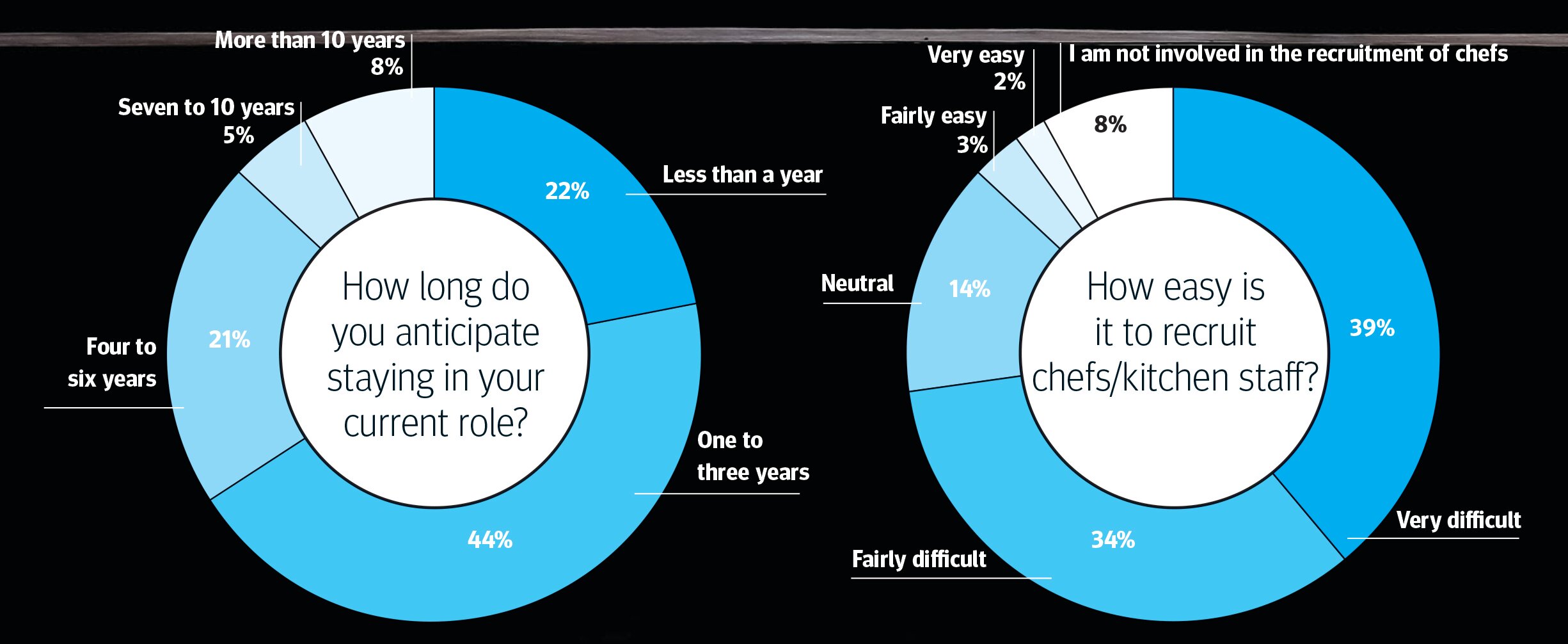
Searcys’ head of people Kate Bell says that there are still some misconceptions, but that they are being eroded by improved employee conditions and the effect of positive media coverage: “I think there is still that perception out there that you’ve got to be available seven days a week, it’s going to be long hours, it’s high pressure and it’s not always a nice environment,” she admits. “At the same time, some people have got this mismatch that they think it’s going to be as glamorous as TV, but actually, it is still quite a pressured environment.”
The report also revealed that loyalty remains hard-won. Of those surveyed, 52% have been in their current position for three years or less, while the average number of jobs held by respondents was eight. Reasons for moving on were better prospects (31%) and seeking new challenges (25%), with many also citing a lack of support (21%).
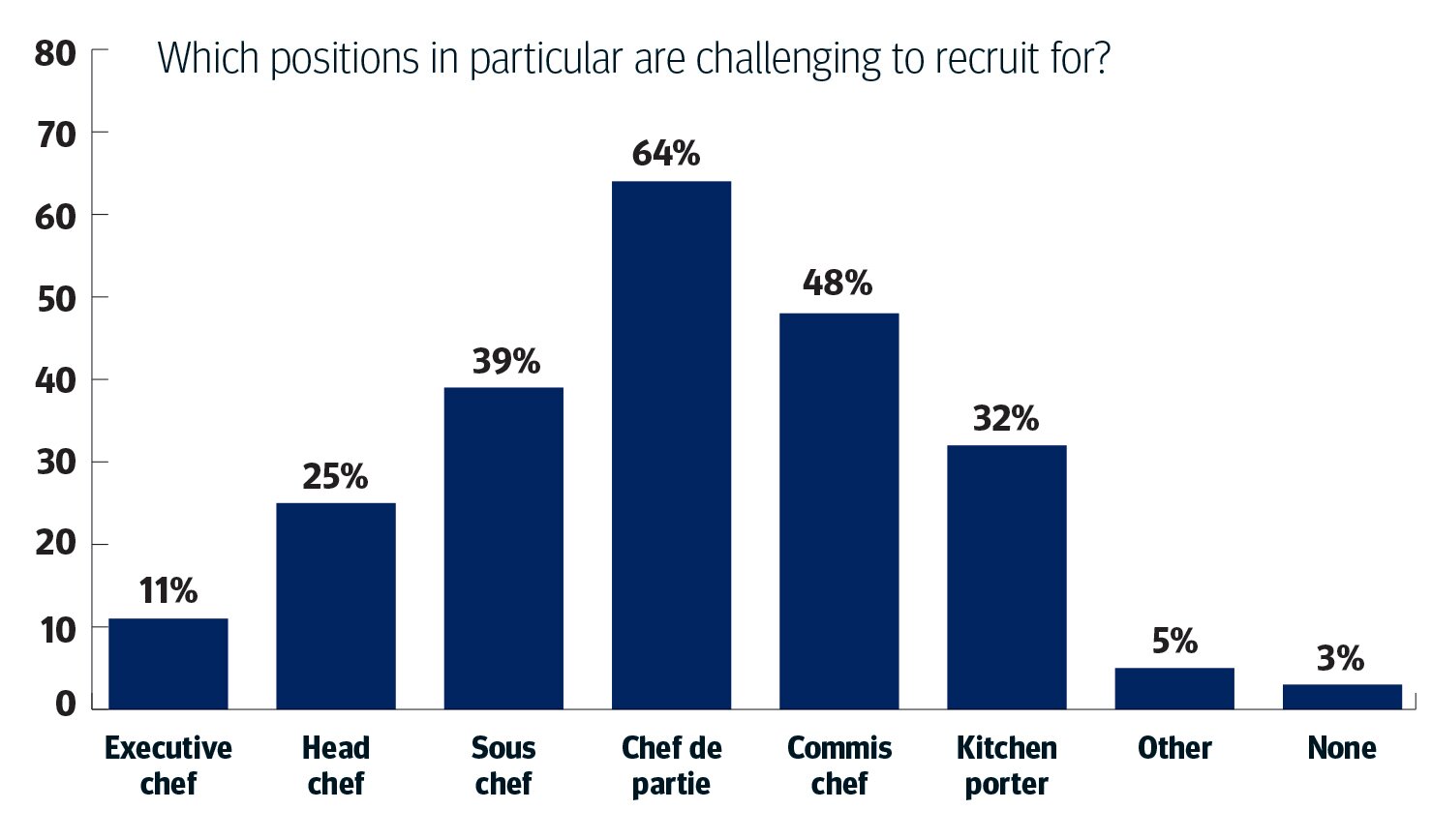
Chef de partie roles were found to be particularly difficult to fill – 64% said they were problematic – with commis chef (48%) and sous chef (39%) roles following closely behind.
Low pay and long hours were blamed by half of those surveyed, though chefs were also concerned about poor quality of produce (47%) and a lack of creativity in the workplace (46%).
The latter is certainly something operators need to address, as it’s the very reason many enter the profession in the first place. Indeed, the research showed that the majority of chefs joined the hospitality industry as they have a passion for food (67%) and because their work in the kitchen gives them an opportunity to be creative (50%).
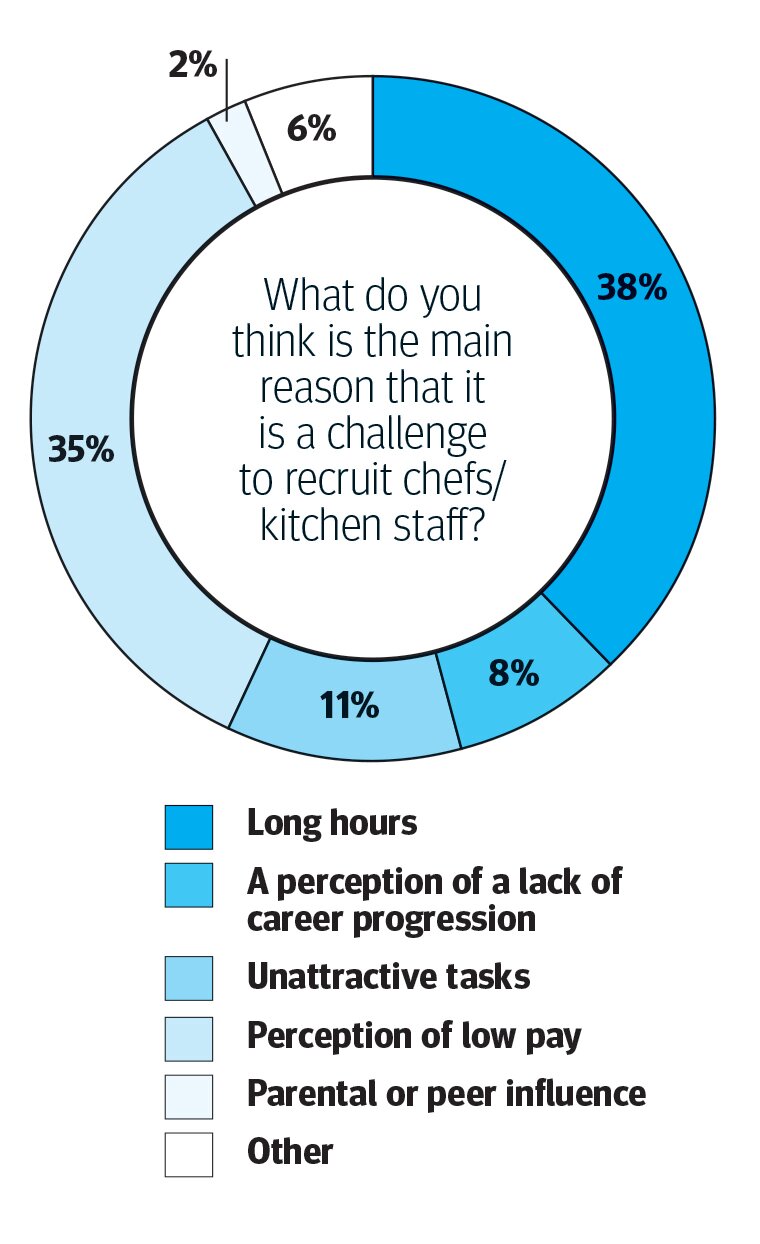
Creativity is clearly a big draw of life as a chef, scoring highly across all age ranges.
Interestingly, it was particularly influential among those that have worked in a professional kitchen for between one and five years (58%), indicating that the profession remains attractive to those who are inspired by the imaginative freedom available in many roles.
People also chose the profession because they saw it as an opportunity to travel, progress and start their own business. For Searcys’ executive head chef at 30 Euston Square Daniel Broughton, who started his career at Green’s near Piccadilly Circus and worked for several other employers before joining Searcys seven years ago as a sous chef, there was simply no other choice. “For me, it was about passion,” he says. “It wasn’t about how much I was getting paid or being the most famous chef in the world. It’s what I wanted to do; there was no other option for me.”
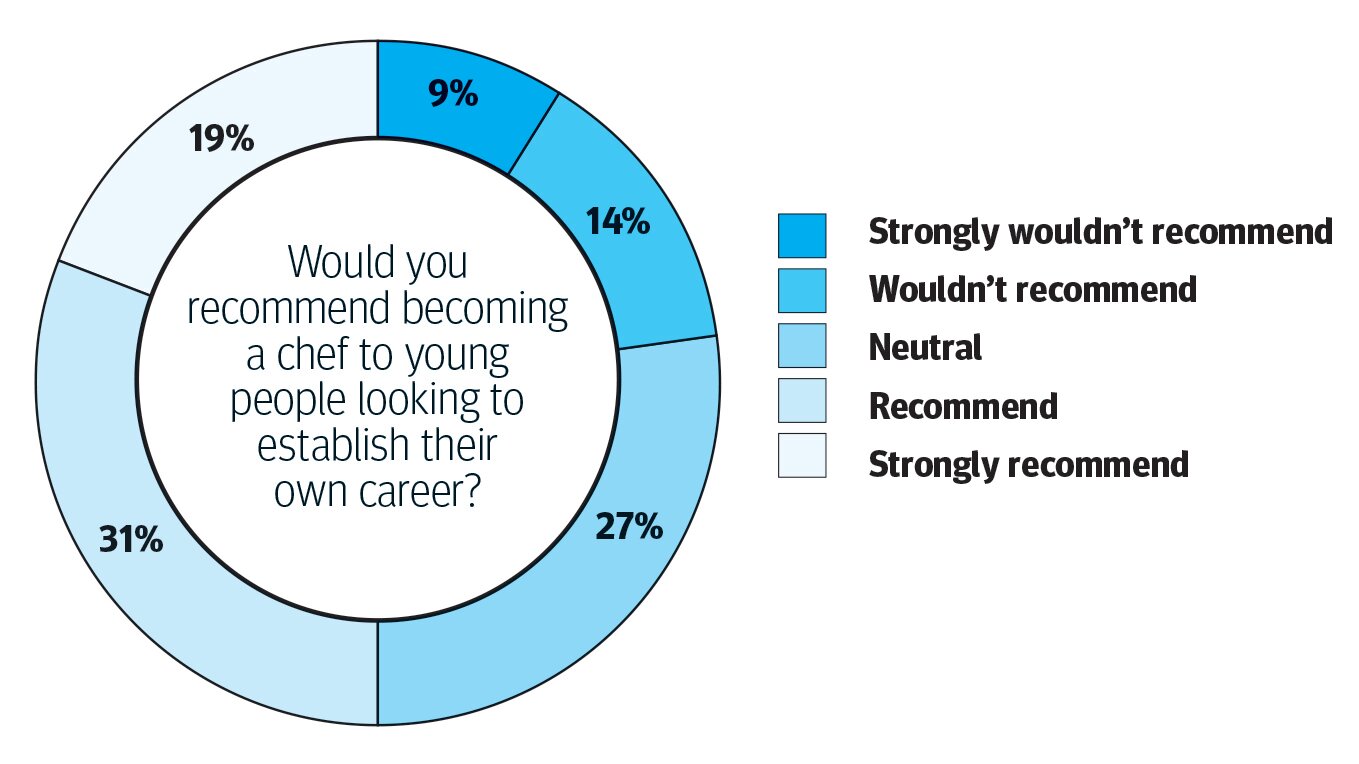
Many years later, he wouldn’t hesitate to recommend the job to young people. “I think if you’re extremely creative, it’s one of the best jobs in the world,” he says. “You can travel all over the world, it’s such a diverse job role and it brings a lot of joy to people. I would definitely advocate being a chef; I even tell my daughters to be chefs!”
Karolina Dlugosz, a young chef and a recent graduate from WSH’s chef academy working at one of Searcys’ venues, agrees, but with an important caveat: “I would always recommend it as a rewarding profession, but also make it clear that it is a really hard job within an often highly pressurised environment,” she says.
She had never thought about working in hospitality, but after starting a job as a sandwich chef, one thing led to another and she hasn’t looked back. “In short, I found it as challenging as I found it fascinating – the more I learned, the more I wanted to know,” she says.
They are joined by half of survey respondents in recommending the profession, although this is skewed towards the more experienced end of the spectrum, where 66% of those with less than four years of service said they strongly wouldn’t recommend it as a career.
Enthusing young people
Clearly, more needs to be done to enthuse young people about working as a chef. Survey respondents were relatively evenly split on how this can best be done, with work experience placements, positive portrayals in the media and collaborations with further education colleges all popular suggestions.
For Bell, it is important to get in even earlier. “I think generally, people are getting more interested in food, but less interested in going into hospitality; they’re not making the link,” she says. “There could be a lot more done at school level to introduce it as an option, because although the world is changing, the chef profession is here to stay and it’s not really being presented as a career choice.”
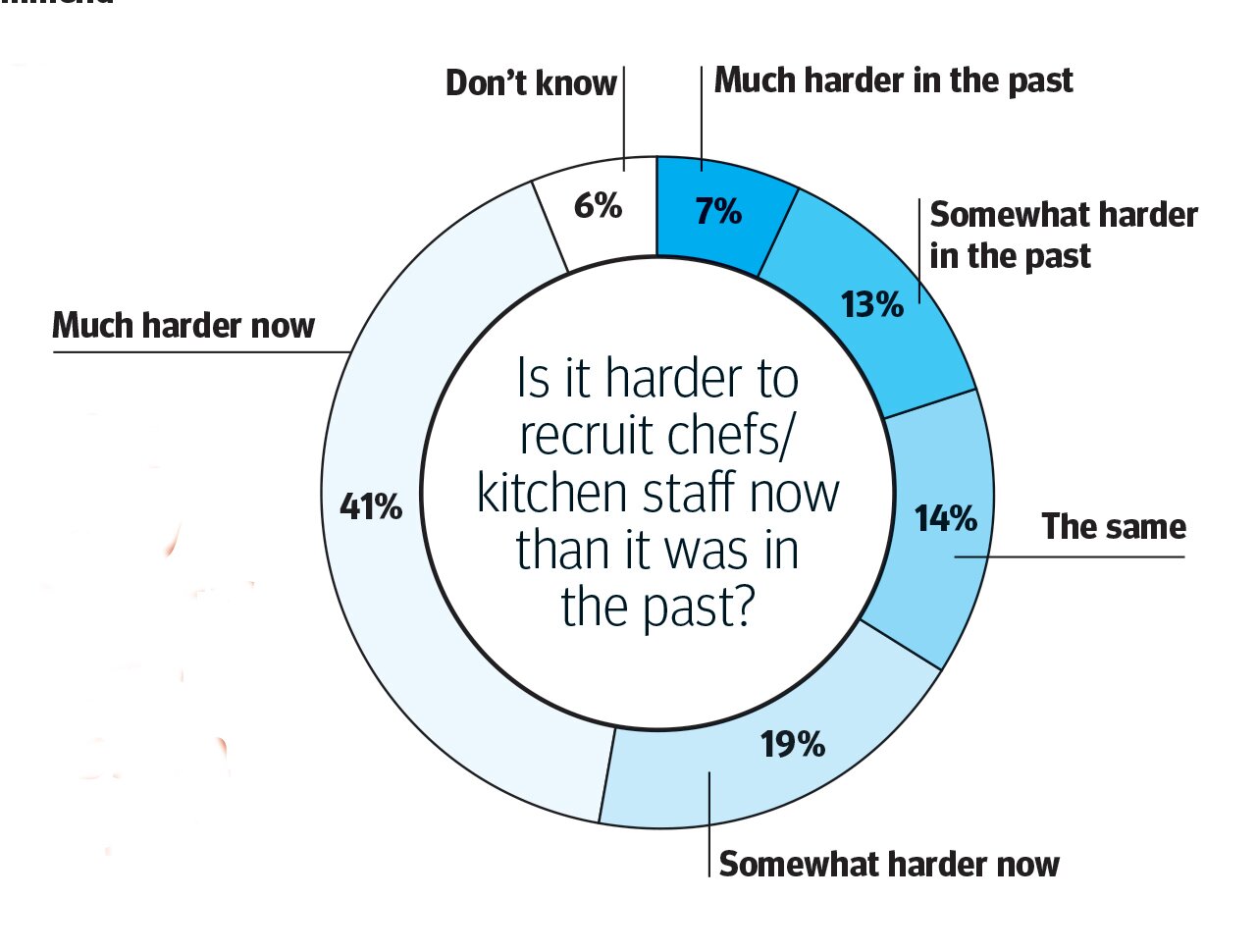
While Searcys is still in the early stages of building partnerships with schools and colleges, the company has been attending various careers fairs for a while “You’ll meet many people who are interested in food, but none of them has considered being a chef as a career opportunity,”says Searcys recruitment manager Sarah Hutchings. “Yet when you actually engage with them and talk about the types of restaurants and events that we work in, people are excited about it. I just don’t think it is explained enough.”
She also thinks it’s crucial for operators to tell their story better in terms of opportunities for progression, working conditions and the opportunity for creativity.
“For us, social media plays a big part in actually telling the story of what the role is and what the team dynamic is like, as well as the venue,” she says. “Once people are already in the industry, it’s about selling the story of what your development could be with us and why we should be an employer of choice.”
This is particularly important for roles that are tougher to find candidates for, such as chef de partie. “One of the factors that makes this role hard to recruit for is competition, but I also think many companies will predominantly play on the salary when they could be doing much more. You need to answer questions like: how many of our CDPs have progressed to sous chefs and then head chefs? What does that journey look like, and how are we and the head chef going to help you on that journey?”
Adds Bell: “There’s also been so much in the past about chefs being aggressive in the kitchen, but that’s not something we accept from any of our chefs. More needs to happen across the sector to demonstrate that our head chefs are actually nice people!”
As Dlugosz summarises: “The industry needs to paint a more realistic picture of the profession, with pros and cons. Working as a chef involves long working hours under – too often – stressful conditions, but it can be really rewarding.”
Creating a healthy working culture
The research also showed cheffing to be a fiercely competitive market. Apart from those with more than 10 years’ service who thought they’d stay in their role for more than 10 more years (47%), the second largest response was from new entrants to the industry who only plan to stay in their current position between one and three years (42%), indicating that many are already looking for their next move.
That said, more than half said that it was neither difficult nor easy to retain a chef (55%), suggesting that those who create the right conditions for loyalty can get results.
For Hutchings, this is about creating a healthy working culture. “You are less inclined to look elsewhere when you feel happy, involved, supported and listened to, and if you have a manager who takes the time to understand your development goals and help you reach them,” she says.
This certainly rings true for Broughton. Throughout his time at Searcys, he has relished being pushed to learn about everything from nutrition to plant-based food and, as executive head chef, he is now paying it forward.
“My ethos is making sure all the team is really included, to ask them for their ideas and seeing how we can implement them,” he says. “So when they start seeing stuff on the menu, they know it is kind of part of them.”
Beyond the training it already offers, Searcys is also rolling out a development programme that will be tailored to each chef. “We want to understand what each individual wants over the immediate, short and long-term, and we’ll then work with the venue they work in to try and achieve that,” Hutchings says. In addition, the company is looking at implementing more chef-led training for all levels, which will include everything from social media to menu costings, finance, management and leadership.
The hope is to encourage more chefs to follow a path similar to that of Rodney Payne, who began his career as a chef, progressed through various food-related roles and eventually became operations director for Searcys.
“As a young chef, I was always encouraged to understand your food, your costs, your labour and so on, and I was always fortunate to have worked with other chefs who saw that as important,” says Payne. “So as I moved up through my career, the move over into operations management probably wasn’t as difficult for me as it may have been for other chefs who are only culinary-focused.”
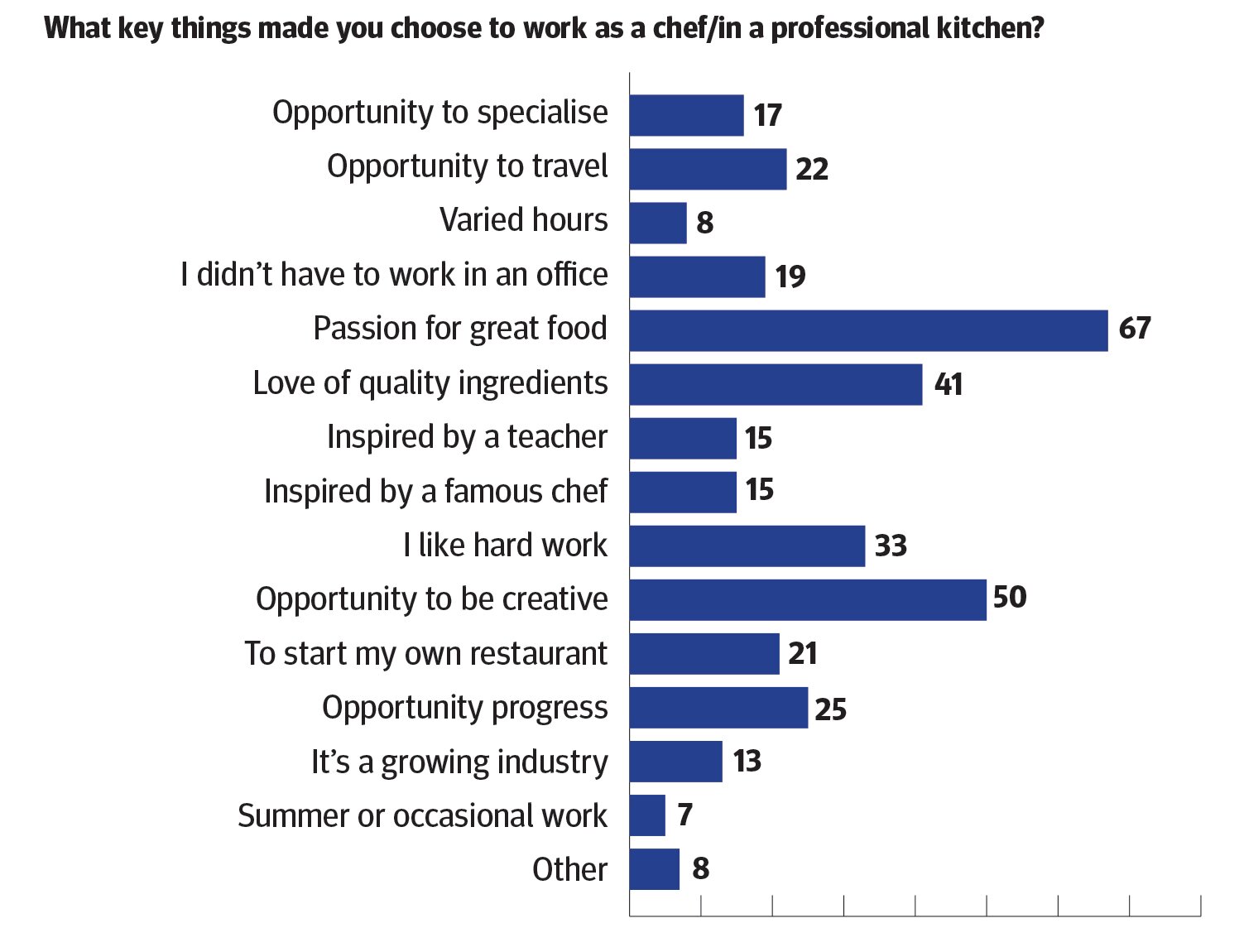
He believes the industry needs to engage with schools and colleges at the earliest opportunity to make students aware of the broad spectrum of opportunities available to them within hospitality. “There’s a lot to our industry and you can make a great career from it,” he says. “People also need to understand that they can make a very good living.”
Not that it will be easy. “Hard work is very important at the early part of what you do,” Payne concludes. “You’ve got to make sure that whatever you choose to do, you enjoy it. If you don’t enjoy it, it’s a difficult way of making money, but if you do, you’ll never work a day in your life.”
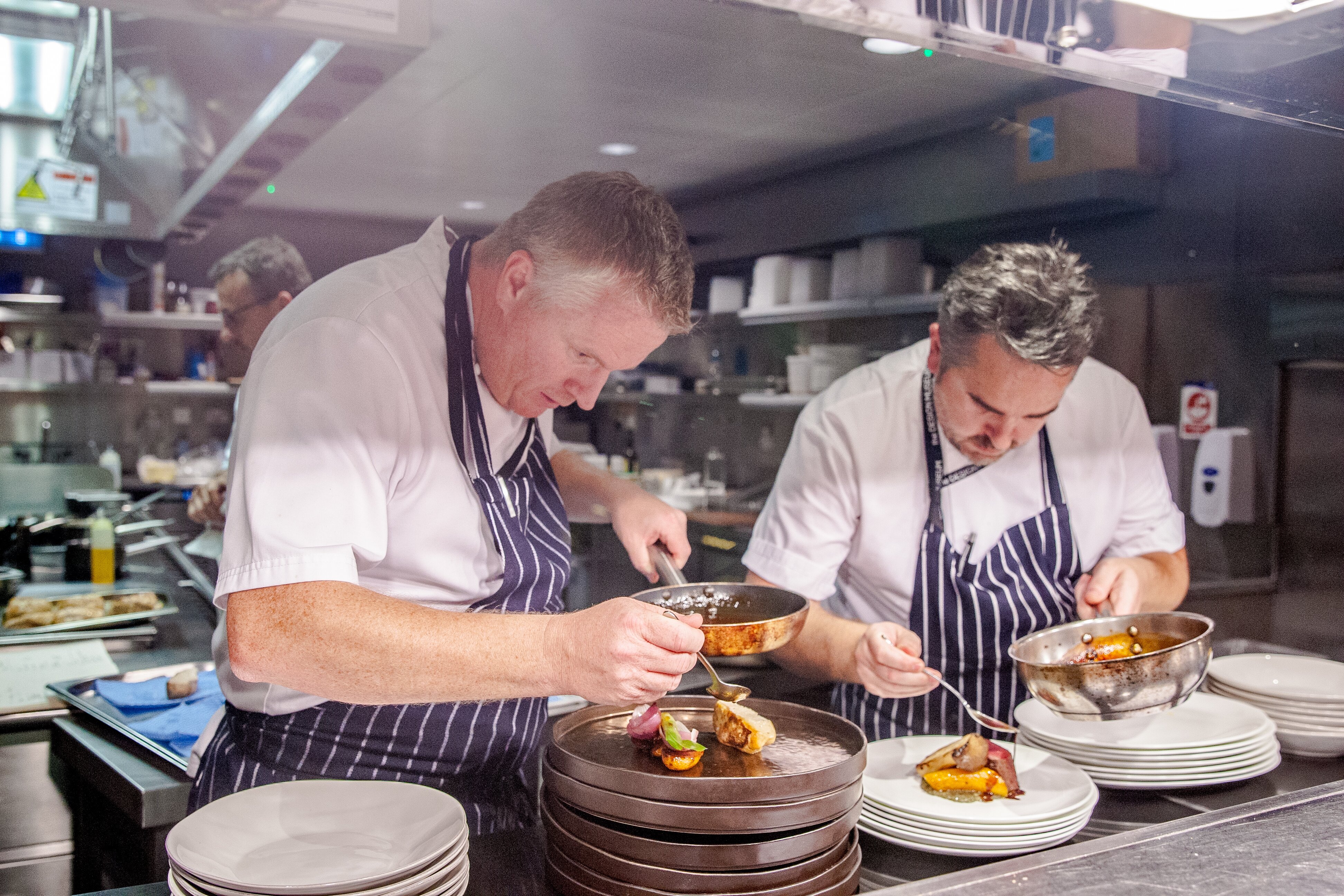
The attraction of an unconventional lifestyle
Valeria Di Rita is executive chef at Searcys venue 10-11 Carlton House Terrace. She originally decided to become a chef because she was fascinated by the unconventional lifestyle, the infinite opportunities the sector has to offer and the science and social impact behind food and hospitality.
She believes that while having a passion for food is a great start, it is not enough to make you a successful chef. “To work in hospitality, you need a varied set of skills and knowledge to deal with customers, staff and suppliers. A good balance of determination, an open mind, humbleness and work and social ethics are also very important,” she says.
Since arriving in England in 2005, Di Rita worked for three companies before joining Searcys – Marco Pierre White’s Luciano, Japanese restaurant Roka and Regent’s Park Open Air Theatre.
She says vision, integrity, fairness, leadership, an honest commitment to people and a strong work-life balance are the main attributes she looks for in an employer.
“Like with any career choice, it is a conscious decision that should not be led by the media portrayals,” she says. “It is not a glamorous job – the lifestyle that it offers is quite challenging on a personal and professional level – but if you have talent and are willing to work hard, being a chef could be rewarding and dynamic. And, on the bright side, it is also in high demand at the moment.”
To entice more people to join the industry, Di Rita thinks it needs to offer higher salaries, better benefits, an improved work-life balance and more career progression opportunities. “It is very important to go beyond passion and inspiration to make hospitality jobs more appealing to a younger audience,” she concludes.



















